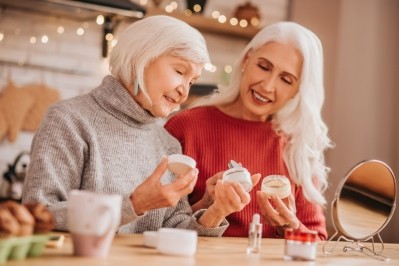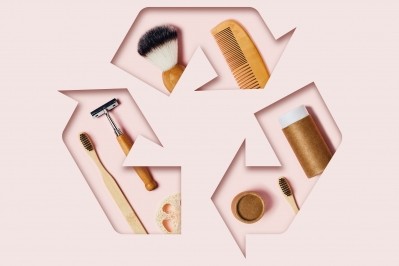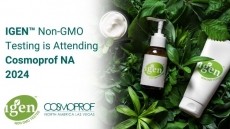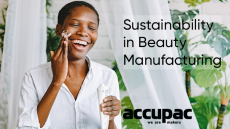'74% less harmful than landfills': An in-depth look at TerraCycle’s SPF Recycling Program
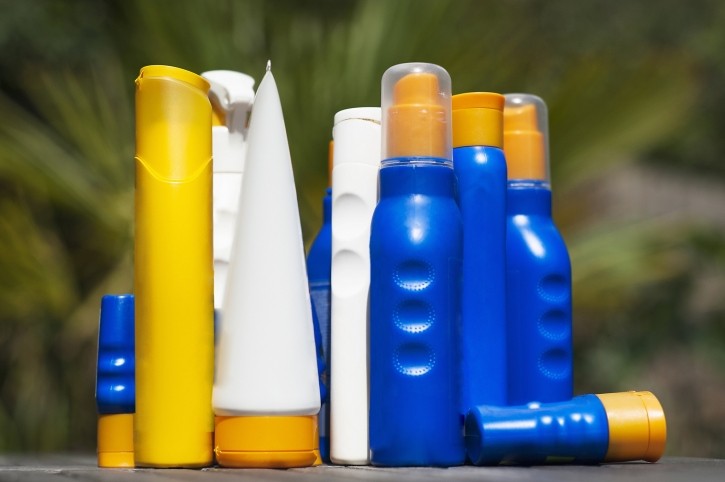
TerraCycle, known for its innovative recycling programs, is tackling the challenge of recycling sunscreen and SPF product packaging—a growing environmental issue within the beauty industry. We spoke to Kathy Pazakis, Chief Commercial Officer of TerraCycle, who shared insights into the company’s efforts to reduce the environmental impact of these difficult-to-recycle items and explained why this initiative is relevant to beauty manufacturers and suppliers seeking to meet evolving sustainability demands.
Overview of TerraCycle’s SPF Recycling Program
TerraCycle has partnered with leading beauty and skin care companies, including Burt’s Bees, Dermalogica, Murad, and others, to offer free recycling programs for sunscreen and SPF product packaging. “Each brand has its own dedicated recycling program with us,” explained Pazakis. In addition to these brand-specific programs, TerraCycle offers a paid solution called the Zero Waste Box, allowing consumers to recycle any brand’s sunscreen packaging.
For manufacturers and suppliers, these initiatives represent an opportunity to align with consumer demand for more sustainable solutions. As sustainability continues to shape purchasing decisions, beauty brands are under increased pressure to adopt eco-friendly practices.
“Through our programs, we aim to keep plastic materials in use and reduce the need to extract virgin materials from the planet,” Pazakis said. By partnering with TerraCycle, brands not only reduce their environmental footprint but also enhance their reputation as leaders in sustainable packaging—something that can offer a potential competitive edge in a crowded market.
Challenges with sunscreen packaging
Sunscreen packaging presents specific recycling challenges that are particularly relevant to beauty industry suppliers. “Many sunscreen containers are made from multiple materials, like different plastics or metals, which are difficult to separate for recycling,” noted Pazakis.
The complexity of these packaging materials often makes them unsuitable for traditional recycling systems, which is why beauty brands looking to minimize their environmental impact should consider innovative approaches like TerraCycle’s.
Suppliers of packaging materials and beauty brands alike should take note of the importance of designing with recyclability in mind. “Our specialized recycling process allows us to shred and wash the packaging, separating materials so they can be recycled,” said Pazakis.
For manufacturers, this underscores the need to consider the recyclability of materials from the outset—whether through material innovation or partnerships with recycling programs that ensure waste doesn’t end up in landfills.
Partnerships with leading brands
For beauty industry manufacturers and suppliers, the success of TerraCycle’s partnerships with brands like Burt’s Bees, Paula’s Choice, and Josie Maran is a clear signal that sustainability efforts are becoming a non-negotiable component of doing business. “These partnerships emerged from a shared commitment to sustainability,” Pazakis explained. “Brands play a crucial role by funding the recycling process for packaging that would otherwise be unrecyclable.”
For brands, supporting recycling initiatives helps differentiate their products in a market that is increasingly focused on sustainability. This trend also impacts suppliers, who need to be aware of the growing demand for sustainable materials that can either be recycled through programs like TerraCycle’s or reduce environmental impact through eco-friendly design.
For beauty brands that have yet to implement similar programs, TerraCycle's partnerships provide a clear example of the consumer and environmental benefits of taking action.
Consumer participation & process
Consumer participation is key to the success of TerraCycle’s programs, and brands can capitalize on this growing trend by educating their customers on recycling opportunities. “Consumers can create a TerraCycle account, sign up for a brand’s recycling program, and send their empty packaging with a prepaid shipping label,” said Pazakis. For beauty manufacturers and suppliers, this represents a shift in the industry, where consumers are no longer just buying products—they’re actively looking for ways to responsibly dispose of them.
By providing these solutions, brands are meeting consumer demand for more sustainable practices. As more consumers become aware of recycling options, suppliers who fail to innovate in packaging design may be left behind. Offering packaging that aligns with these recycling programs will soon be an expectation for beauty brands, reinforcing the need for industry stakeholders to prioritize eco-friendly materials and solutions.
Environmental & industry impact
The environmental impact of TerraCycle’s programs is significant, and beauty brands involved are positioning themselves as pioneers of sustainable change. “Our programs move packaging from a linear system, where it is discarded, into a circular system, where waste is recycled into raw materials,” said Pazakis.
A third-party Life Cycle Assessment (LCA) revealed that TerraCycle’s programs are, on average, 74% less harmful to the environment compared to landfilling, and 67% less harmful than waste-to-energy solutions.
For beauty manufacturers and suppliers, the message is clear: sustainable packaging solutions are not only good for the planet but also for business. As more brands adopt these initiatives, the industry as a whole is moving toward higher standards for sustainability.
“Our brand partners are seen as sustainability leaders, encouraging other companies to adopt similar initiatives,” Pazakis said. This trend is likely to drive higher standards across the industry, as consumer awareness and regulatory pressures increase.
Future expansion & challenges
Looking ahead, TerraCycle plans to expand its SPF recycling programs. “We’re always open to collaborating with brands of all sizes, from start-ups to large conglomerates,” Pazakis shared. This presents an opportunity for smaller beauty brands and suppliers to get involved early, positioning themselves as sustainable leaders in their respective categories.
However, awareness remains a major challenge. “Consumers know they can’t put sunscreen tubes in their curbside bins, but many don’t know what to do instead,” Pazakis noted. For manufacturers and suppliers, this highlights the importance of consumer education and clear communication about sustainable packaging options.
For beauty manufacturers and suppliers, the success of TerraCycle’s SPF recycling program is a clear signal that sustainability is no longer optional—it’s a necessity. As brands seek ways to minimize their environmental impact and consumers become more eco-conscious, the industry must rise to the challenge by adopting sustainable packaging practices and forming partnerships with recycling innovators like TerraCycle. The future of beauty is circular, and those who take proactive steps now will be best positioned to lead the way.


